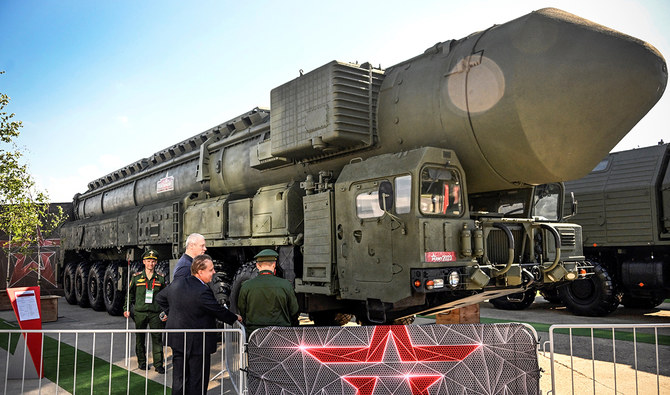ISLAMABAD: Islamabad on Monday rejected a report in an international media outlet that a secret Pakistani arms sale, made for the purpose of supplying the Ukraine military, helped to facilitate a bailout from the International Monetary Fund earlier this year.
The Intercept, an online American nonprofit news organization, on Sunday published a report saying “economic capital and political goodwill” from an arms sales to the US played a key role in helping secure a badly-needed $3 billion short-term financial package from the IMF in June. The report cited two unnamed sources with knowledge of the arrangement, with confirmation from internal Pakistani and American government documents.
Foreign Office Spokesperson Mumtaz Zahra Baloch rejected the report as “baseless and fabricated.”
“The IMF Standby Arrangement for Pakistan was successfully negotiated between Pakistan and the IMF to implement difficult but essential economic reforms. Giving any other color to these negotiations is disingenuous,” she said.
“Pakistan maintains a policy of strict neutrality in the dispute between Ukraine and Russia and in that context, does not provide any arms and ammunition to them. Pakistan’s defense exports are always accompanied with strict end user requirements.”
On February 23, Russian President Vladimir Putin ordered a full-scale invasion of Ukraine. The move drew widespread condemnation from countries around the world and triggered sanctions by Western powers on Russia and Putin’s allies in the country. Pakistan remains one of the few countries in the world that have refrained from condemning Russia directly, though it has called for the use of diplomacy to resolve the crisis.
Islamabad has also stated categorically that it does not want to be part of any bloc and repeatedly called for de-escalation.
“Pakistan is known as a production hub for the types of basic munitions needed for grinding warfare,” The Intercept report said.
“As Ukraine grappled with chronic shortages of munitions and hardware, the presence of Pakistani-produced shells and other ordinances by the Ukrainian military has surfaced in open-source news reports about the conflict, though neither the US nor the Pakistanis have acknowledged the arrangement.”
Records detailing the arms transactions were leaked to The Intercept earlier this year by a source within the Pakistani military, the outlet said, adding that the documents described munitions sales agreed to between the US and Pakistan from the summer of 2022 to the spring of 2023.
“Some of the documents were authenticated by matching the signature of an American brigadier general with his signature on publicly available mortgage records in the United States; by matching the Pakistani documents with corresponding American documents; and by reviewing publicly available but previously unreported Pakistani disclosures of arms sales to the US posted by the State Bank of Pakistan.”
The weapons deals were brokered, according to the documents, by Global Military Products, a subsidiary of Global Ordnance, a controversial arms dealer whose entanglements with less-than-reputable figures in Ukraine were the subject of a recent New York Times article.
Documents outlining the money trail and talks with US officials include American and Pakistani contracts, licensing, and requisition documents related to US-brokered deals to buy Pakistani military weapons for Ukraine, The Intercept said.
















